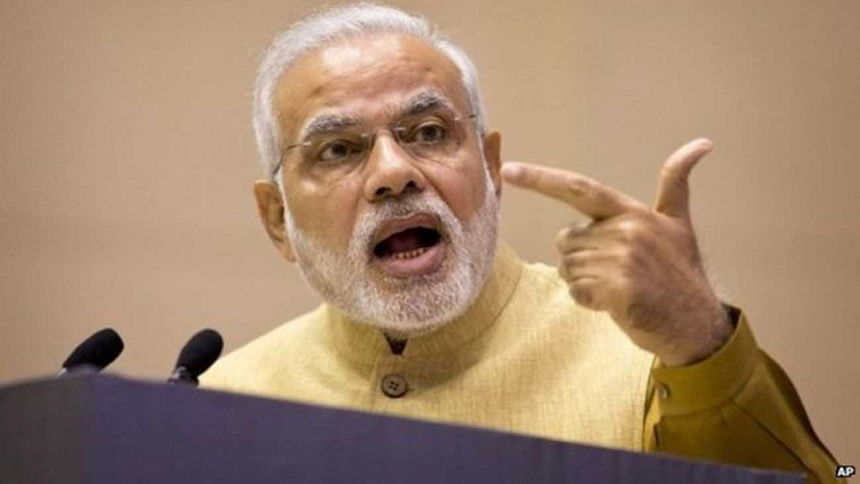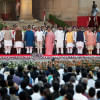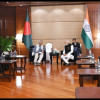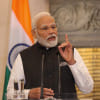Modi's two years in power a 'mixed bag'

India media say Prime Minister Narendra Modi's two years in power have been a mixed bag.
Modi was sworn in two years ago with a promise to reform the economy, boost employment and rejuvenate social welfare schemes.
Newspapers and pundits agree he has taken some steps in the right direction, but caution that he hasn't been able to fulfil many of his promises.
The Times of India editorial says it is "evident that much has changed" and the "pall of gloom that hung over the economy has lifted".
"On the flip side of the ledger, the economy is yet to fire on all cylinders as in some respects, crony capitalism has been replaced by crony socialism. The Modi government hasn't shown much stomach for bold economic reform, ease of doing business has improved only marginally," it says.
The paper, however, praises the government's initiatives in infrastructure development.
"In terms of building India's infrastructure and energy security the power, rail, road and petroleum ministries are doing an excellent job. And Modi has conducted a bravura foreign policy which has significantly raised India's profile in the world," it adds.
The Hindustan Times agrees that the PM has shown a keen interest in India's foreign policy.
"Having visited 40 countries as the PM, Modi has placed himself well on the world map, successfully courted the US as an ally, displayed inspiration in befriending Japan with an 'Act East' policy and built bridges with Iran," it says.
But the paper highlights that Modi hasn't been very successful in India's immediate neighbourhood.
"Tensions with Pakistan persist despite his pro-active flight to Lahore, Nepal is no longer a tame neighbour and relations with China remain edgy," it says.
Some analyst also point out that Modi's popularity has largely remained intact because of a weakened Congress party.
"He has benefited in many ways from the disarray in the ranks of the main opposition party, the Congress, that ruled India for the better part of the past six decades under the leadership of the Nehru-Gandhi family. Yet, the party today is struggling to retain its relevance in a rapidly changing nation, mainly because the dynasty is no longer as potent as it used to be," write Harsh V Pant in The Diplomat.
Loud silences
Some papers and analyst have also highlighted his weak responses to cases of intolerance against India's minority Muslim community and his inability to work with the opposition.
"In its two years, the Modi government has not addressed itself in any notable manner to the country's minorities. Instead, at critical moments, it has sought to sidestep the need to do so by ducking behind the opaque slogan "sabka saath sabka vikas" [Together with all, development for all], when it has not retreated behind loud silences," writes The Indian Express in its editorial.
Modi was criticised for remaining silent after Mohammad Akhlaq, a 50-year-old Muslim man in northern India, was killed in a mob lynching in last September over false rumours that his family had been storing and consuming beef at home.
The paper also highlights the government's inability in reaching out to the opposition to pass key bills.
Modi's BJP party doesn't have a majority in the upper house of parliament and it needs support from opposition parties to get bills passed.
"Not only has the Modi-BJP not made a break with past petulance in government-opposition relations, it has added to it considerably," it writes.
Writing in The Indian Express, Pratap Bhanu Mehta argues that Modi rode to electoral success by tapping into "a fear that India would slide into unbridled defeatism".
"The sense of defeatism has abated. But India is far from a deep transformation; and the risk of social and political conflict is returning," he writes.
Mehta advises the government to be more open to hold dialogues with its opponents.
"The government has to be clear whether it stands for a politics of hope or a politics of resentment," he writes.

 For all latest news, follow The Daily Star's Google News channel.
For all latest news, follow The Daily Star's Google News channel. 








Comments